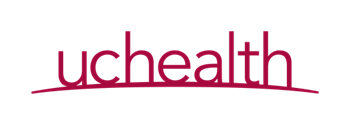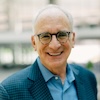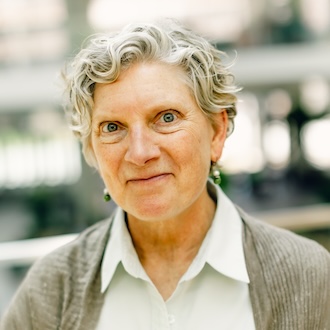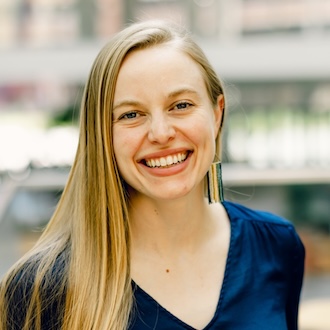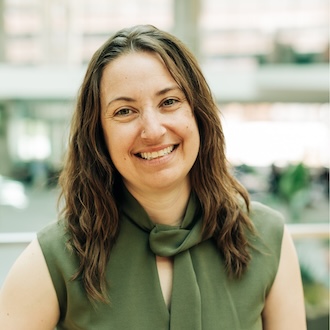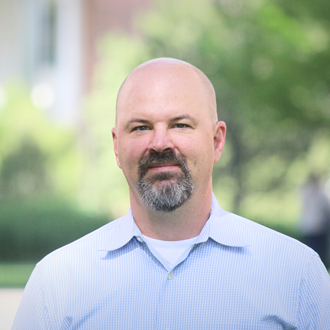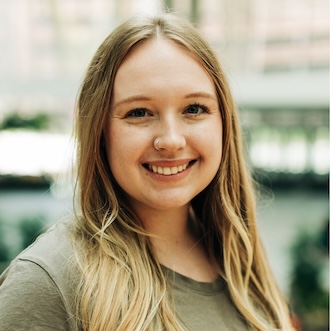Well-Being and Cancer at Work (WeCanWork)
A Total Worker Health® intervention to improve cancer survivors’ well-being and work outcomes by enhancing oncology care team support.
About the WeCanWork program
/photo-1606166155766-87872211cd0e.webp?sfvrsn=21749fbb_0&MaxWidth=223&MaxHeight=335&ScaleUp=false&Quality=High&Method=ResizeFitToAreaArguments&Signature=8CB98D3EB36EA26811677019A8E92E5E5C06EFA8)
Cancer survivors face many challenges when they return to work during and/or after their treatment. They experience worse well-being when their changed physical and cognitive abilities do not align with their job demands. Oncology teams do not have a work-specific supportive service to refer patients to.
The Well-Being and Cancer at Work (WeCanWork) program aims to improve working cancer survivors' access to experts who assess their ability to continue working during periods of illness and disability. WeCanWork also aims to empower patients who want to work and oncology care providers to support patients through occupational medicine referrals.
Recently, the WeCanWork program created a simple and efficient referral process for oncology practices to send their patients to occupational medicine consultations. The program is led by the Dean of the Colorado School of Public Health, Dr. Cathy Bradley, and is currently in its implementation stage.
This study aims to longitudinally assess how cancer diagnosis impacts employment, financial, and well-being on employed patients treated in community- and academic-based oncology practice settings. Through participatory research approaches, we will engage community- and academic-based oncology care teams and occupational medicine practices to identify challenges in providing work-related support to cancer patients and refine the design of a Total Worker Health training-based intervention to improve working patients’ economic and well-being outcomes.
The WeCanWork study includes three aims:
1. Longitudinally assess the employment, financial, and well-being impact of a new solid tumor cancer diagnosis on employed men treated in community- and academic-based oncology settings.
2. Engage with a community- and academic-based oncology care team and occupational medicine practice to identify challenges in providing work-related support to patients and to refine the design of a Total Worker Health (TWH) training-based intervention to improve working patients’ economic and well-being outcomes
3. Longitudinally assess a TWH-tailored employment counseling intervention in the community- and academic-based oncology practices to benefit cancer survivors’ employment and well-being outcomes.
Bradley CJ, Dye-Robinson A, Dally M, Schwatka N, Newman LS, Tenney L. Short-term employment changes of men newly diagnosed with cancer: well-being of cancer survivors at work study (WeCanWork). J Cancer Surviv. 2025 Mar 1. doi: 10.1007/s11764-025-01754-z. Epub ahead of print. PMID: 40025002.
Schwatka, NV, Dally, M, Dye-Robinson, A. Tenney, L, Brown CE, Goering, M, Williams B, Newman LS, Bradley, CJ. WeCanWork study: well-being of male cancer survivors working physically demanding jobs. BMC Public Health 25, 2025. https://doi.org/10.1186/s12889-025-23147-8.
Tenney L, Brown CE, Schilz M, Goering M, Dally M, Dye-Robinson A, Williams B, Newman LS, Bradley C. Engaging Oncology and Occupational Medicine to Inform Design of a Total Worker Health® Intervention to Address Employment, Financial, and Well-being Outcomes in Cancer Survivors. J Occup Environ Med. 2024 Nov 1;66(11):e537-e543. doi: 10.1097/JOM.0000000000003204. Epub 2024 Aug 16. PMID: 39146311; PMCID: PMC11869796.
Yabroff KR, Bradley C, Shih YT. Understanding Financial Hardship Among Cancer Survivors in the United States: Strategies for Prevention and Mitigation. J Clin Oncol. 2020 Feb 1;38(4):292-301. doi: 10.1200/JCO.19.01564. Epub 2019 Dec 5. PMID: 31804869; PMCID: PMC6994250.
Bradley CJ, Brown KL, Haan M, Glasgow RE, Newman LS, Rabin B, Ritzwoller DP, Tenney L. Cancer Survivorship and Employment: Intersection of Oral Agents, Changing Workforce Dynamics, and Employers' Perspectives. J Natl Cancer Inst. 2018 Dec 1;110(12):1292-1299. doi: 10.1093/jnci/djy172. PMID: 30346557.
de Moor JS, Alfano CM, Kent EE, Norton WE, Coughlan D, Roberts MC, Grimes M, Bradley CJ. Recommendations for Research and Practice to Improve Work Outcomes Among Cancer Survivors. J Natl Cancer Inst. 2018 Oct 1;110(10):1041-1047. doi: 10.1093/jnci/djy154. PMID: 30252079; PMCID: PMC6454422.
Are you a part of an oncology clinic looking to recruit patients to occupational health resources or would like to learn more about WeCanWork? Check out our resources below.
- WeCanWork Program Overview PowerPoint
- WeCanWork Tip Sheet
- WeCanWork Patient Intake Script
- WeCanWork Recruitment Flyer
Questions? Contact our team at [email protected].
In the News
Colorado School of Public Health Launches Innovative Program to Support Working Cancer Patients
A New Colorado Program Supports Working Cancer Patients
Center for Health, Work & Environment receives award to continue National Center of Excellence for Total Worker Health®
Our team
Miranda Dally DrPH, MS
Our partners

